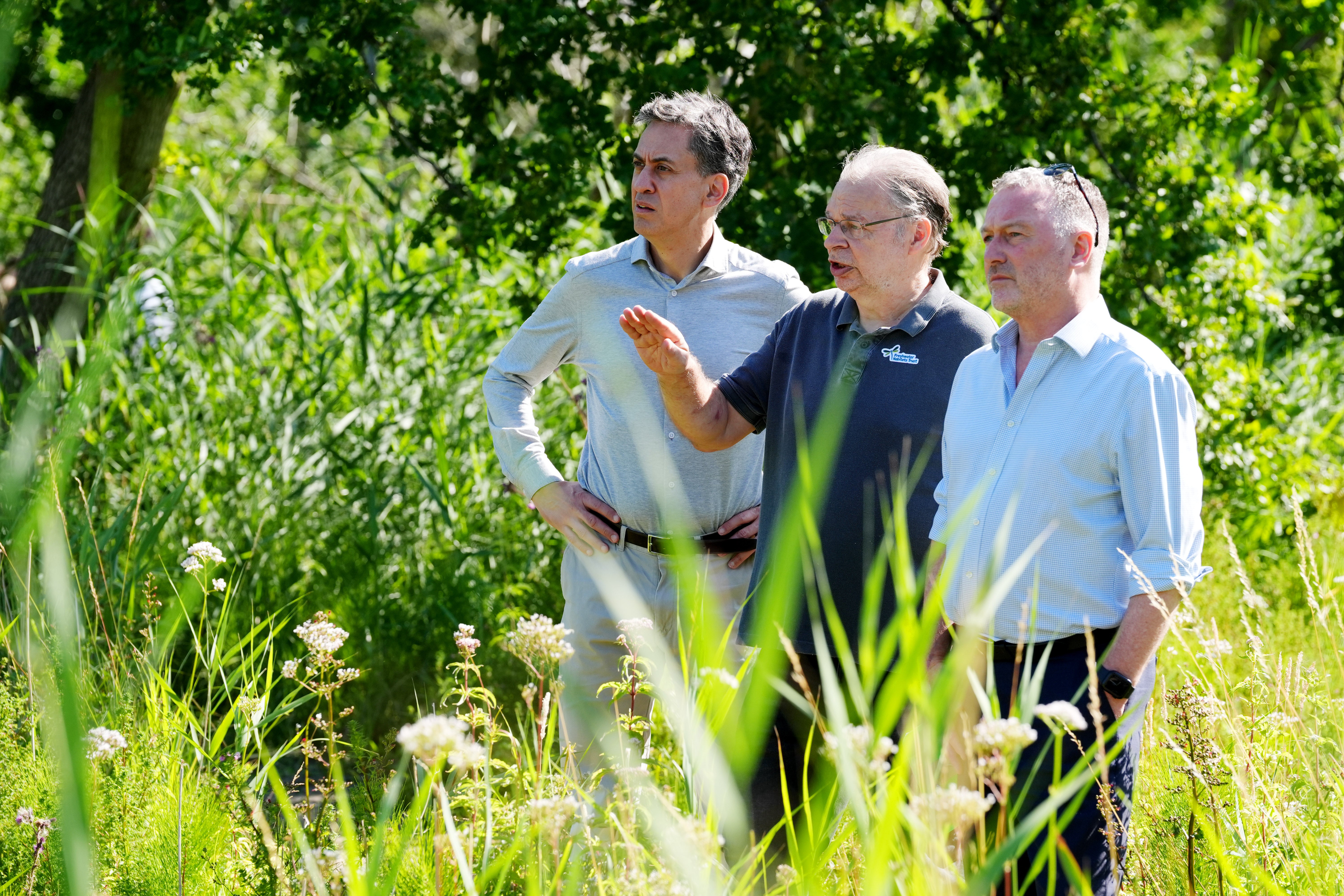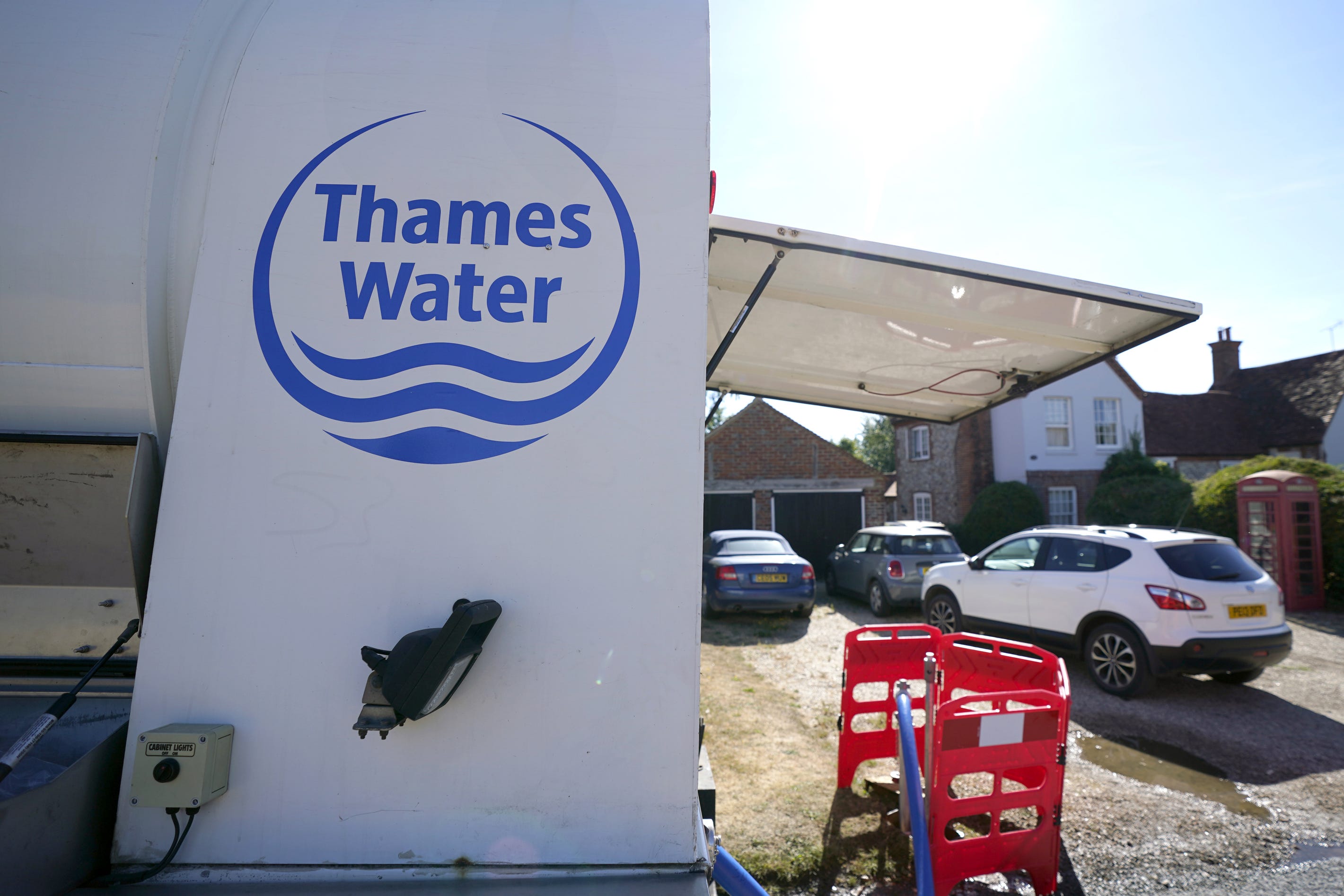Labour will leave Britain with the cleanest rivers on record by cutting sewage pollution from water firms in half by 2030, the environment secretary will say.
Steve Reed will promise on Sunday to make the UK’s rivers the cleanest since records began with a £104bn investment to rebuild the country’s crumbling sewage pipes.
Mr Reed will also roll out a set of strict new rules to slash pollution and a “root and branch” overhaul of the way water companies are regulated.

With a landmark report into the industry being published on Monday, the environment secretary is to promise families across the country cleaner beaches and healthier rivers.
It will mark the first time ministers have set a clear target for reducing sewage pollution against which they can be judged at the next election.
The package is also aimed at reducing phosphorus from treated wastewater by half by 2028 – the pollutant causes algae blooms, which are harmful to wildlife.
The pledge comes as the government faces public disgust over record sewage spills and rising bills, while tasked with turning around the poor governance of debt-ridden water firms.
Mr Reed said: “Families have watched their local rivers, coastlines and lakes suffer from record levels of pollution.
“My pledge to you: the government will halve sewage pollution from water companies by the end of the decade.”
It comes ahead of Monday morning’s publication of the Independent Water Commission’s landmark review into the ailing water sector.
The commission was set up by the UK and Welsh governments as part of their response to systemic failures in the industry, although ministers have ruled out nationalising companies.
The government will respond to the recommendations in parliament on Monday.

On Friday, the Environment Agency revealed that serious pollution incidents caused by water firms across England increased by 60 per cent last year, compared with 2023.
The watchdog said companies recorded a total of 2,801 pollution incidents in 2024, up from 2,174 in 2023.
Of these, 75 were categorised as posing “serious or persistent” harm to wildlife and human health, up from 47 last year.
Ministers have vowed a “root and branch reform” to the industry and have introduced a package of measures over the last year to cut pollution levels.
They have banned bonuses for 10 bosses this year and threatened prison sentences for law-breaking executives.
The government has also hailed plans for £104bn of investment into upgrading crumbling pipes and building new treatment works, as well as ringfencing consumer bills for upgrades instead of companies using money for shareholder payouts of executive bonuses.
Meanwhile, the Environment Agency has received a record £189m to support hundreds of enforcement officers for inspections and prosecutions, with fines from companies footing the increase in funding.
Ministers hope this will help to reach the newly announced targets on sewage pollution, which can cause harm to swimmers, loss of aquatic life, and the destruction of ecosystems.
“One of the largest infrastructure projects in England’s history will clean up our rivers, lakes and seas for good,” Mr Reed said.
The new pledge also includes working with devolved governments to ban wet wipes containing plastic across the UK, continued work on pre-pipe measures, such as sustainable drainage systems, and the start of trials by water companies of nature-based solutions, such as constructed wetlands.
It comes alongside the storm overflow discharge reduction plan, which has set targets on reducing spills, including a 75 per cent reduction in discharging into high-priority sites, such as rare chalk streams, by 2035.
There is an already existing statutory target to reduce phosphorus loadings from treated wastewater by 80 per cent by 2038 against a 2020 baseline, as well as an interim goal of a 50 per cent reduction by the end of January 2028 under the environmental improvement plan.


